By Brandy Collins Posted April 2, 2021 7:13 pm
It’s a difficult time to prioritize emotions. Days after people took to the streets in protest for #StopAsianHate responding to the mass shooting of eight people in Atlanta, six of whom were Asian women, comes the news of the jury selection in the Derek Chauvin trial. Chauvin is on trial, charged with second-degree unintentional murder, third-degree murder, and second-degree manslaughter in last year’s killing of George Floyd and once again, Black people are reliving the nightmare of George Floyd’s killing.
With both Asian and Black communities simultaneously needing support, it also raises the question of whether there is true solidarity between our communities of color. Some say we can point to generations past citing the support for Black lives has always been there including historical moments and figures of solidarity between the two communities. However, others can point to a more recent history that may leave some within the Black community angry, doubtful, and hurt, raising another question: “Will people still be standing with the Black community when the dust settles?” In February, heightened tensions brought national attention to Oakland citing a division of Black and Asian communities.
In Oakland, the rich history of organizing and solidarity-building between different communities is still evident today. We researched a few Oakland-based organizations and community groups that are Asian American-led that are taking steps to contribute to the wellness and solidarity for other people of color in Oakland, particularly the Black community, whether directly or indirectly. We also want to recognize that there are Asian American leaders of organizations doing cross-racial solidarity work who are not included on this list, including Nicole Lee, Executive Director of Urban Peace Movement and Liz Suk, Executive Director of Oakland Rising. Groups like AAPI Women Lead, led by sisters Jenny and Connie Wun, center voices of AAPI women and state that the work they do is “in solidarity alongside Black, Indigenous, people of color and LGBTQ+ communities.”
Below is a non-exhaustive list of some Oakland-based organizations doing frontline work toward healing and justice. The sentiment behind the organizations is the same: one group’s liberation is intertwined with another’s liberation.
Asians4BlackLives
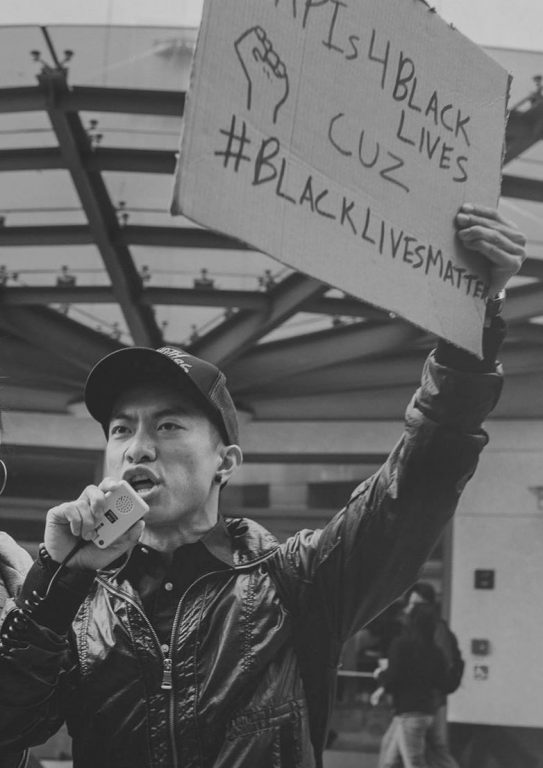
Asians4Black Lives was created in 2014 as a direct action group in protest of the police killing of Michael Brown. It is not a centralized group, but rather a collective of Asian American activists and community organizers who lead direct action for the sake of equity and equality for Black lives.
They refer to themselves as not an organization but “hella organized,” according to member Tim Huey. In 2014, their first call to action was against the Oakland Police Department and demanding to end the aggression against Black people after Michael Brown was killed in Ferguson, Missouri. Asian4BlackLives protestors demonstrated in front of the Oakland Police Department police headquarters in solidarity with other activists, blocking the entrance, and were subsequently arrested.
The group, which contributes to work across the Bay Area, has been explicit about giving space to Black-led organizations and not comparing Asian struggles are the same as Black struggles. The group is active in real life and also on social media, often educating others on how Asian Americans can support Black lives, and rooting out anti-Blackness within Asian American communities. “There is a certain level of fear, distrust and jumping to a militarized response by certain segments of the Asian community,” explained Huey. “That has a lot to do with white supremacy, division, and ‘divide and conquer’ kind of set up — pitting a ‘model minority’ against the Black community.” The group actively reminds Asian Americans of times when the Black community stood up for Asians.
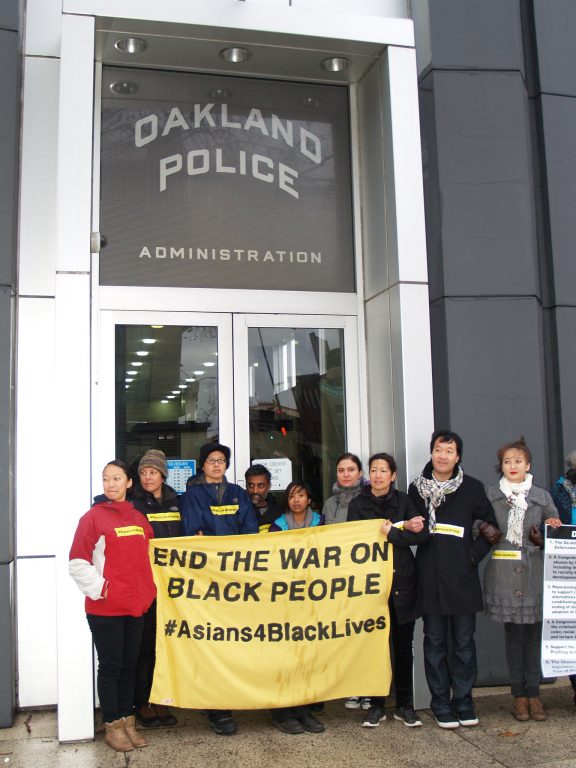
Huey said there have been historical, systemic-related conflicts but also solidarity: “We are recognizing those [divisive] factors are there and digging deeper into the long history of Asian Black solidarity going all the way back to the Buffalo Soldiers in the Philippines. There is a legacy of being pitted against each other whether it’s the LA riots or settling Southeast Asian refugees in working-class communities that left a lot of Black folks without support from the government that was resettling people.”
Huey expressed the common sentiment of not only the Black community but one expressed by the Asian community and others who have been feeling the impact of violence perpetrated against them. “Everyone should feel safe in their community,” Huey said.
Asian Prisoner Support Committee (APSC)
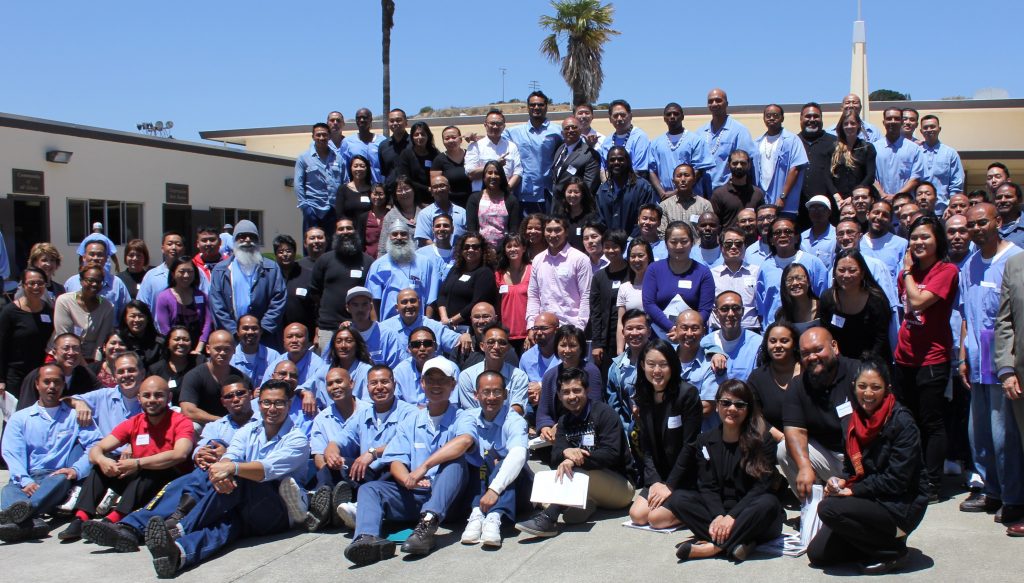
Asian Prisoner Support Committee began in 2002 in San Quentin State Prison as support against administrative retaliation against a few incarcerated people who advocated for Ethnic Studies and Asian American studies in the college program, as well as an anti-deportation resource for Asian Americans who have been incarcerated. Later, in 2012, APSC started a re-entry program in 2012, providing direct services for community immersion activities and referrals for recently released individuals. APSC also runs Restoring Our Original True Selves (ROOTS), an Ethnic Studies curriculum within prisons and other jails providing education around intergenerational trauma, immigration and refugee history, and reentry planning. APSC’s third program is anti-deportation in attempts to prevent deportation and direct transfer to ICE.
With three programs to serve incarcerated and formerly incarcerated persons, APSC organizers want to be clear that they aren’t claiming to be at the forefront of racial felony efforts; rather, their work is for the collective.
“We are trying to play a role in bridging solidarity through our ROOTS program or even our reentry program and the overall messaging around alternatives to mass incarceration as a form of solidarity,” said Ben Wang, Co-director of APSC. “Within all of those [programs], we try to uplift racial solidarity,” Wang said. Some of the services provided are tailored specifically for Asian Americans based on the community and cultural needs. However, the overall impact of the work within the prison industrial complex works to the benefit of Black and brown communities facing similar struggles such as poverty, employment discrimination because of a previous incarceration record, recidivism, probation, and parole. APSC also co-founded the Chinatown Clean Ambassador Program, which hires formerly incarcerated people to clean streets, graffiti, and be an extra set of eyes in Oakland’s Chinatown, though they are no longer involved in the program.
The organization advocates for reinvestment of public resources into alternatives on the county level toward violence prevention and reentry services. ASPC has worked collaboratively with former Alameda County Public Health Department Director and community change agent Arnold Perkins. Perkins worked with APSC as a consultant and speaker in a number of areas, including youth development, intergenerational work in African American communities, HIV and AIDS, organizational change, and community engagement. Supporting the work of prison reform in January 2020, the organization partnered with AAPI Women Lead to host a screening of Just Mercy starring Fruitvale Station star Michael B. Jordan at the Grand Lake Theater, followed by a panel discussion with community leaders.
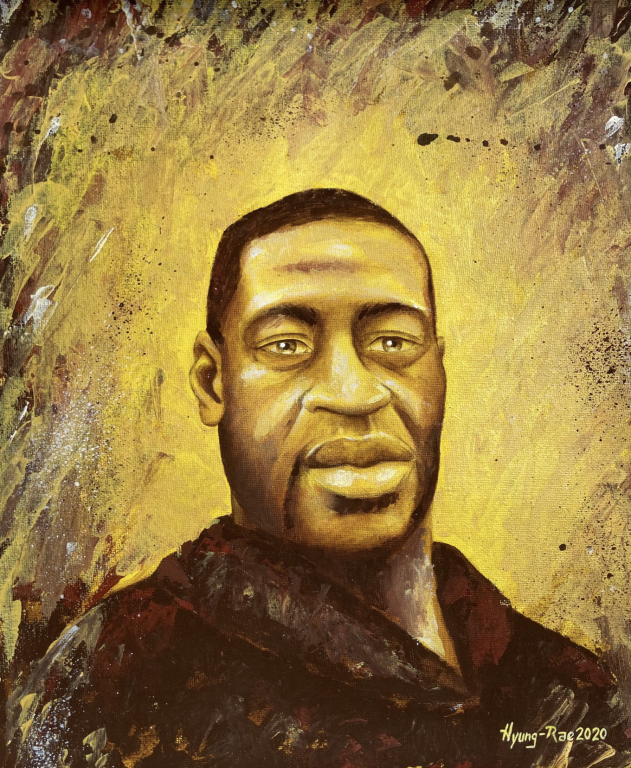
While the organization focuses on Asian American issues, the organization also maintains their alignment in providing support to the Black community. Mass incarceration and sentencing disproportionately impacts African Americans.
“For us, our philosophy is by trying to address the impact of mass incarceration and the school-to-prison pipeline and the tough-on-crime increased criminalization policies that have occurred in a lot of our communities,” Wang said. “By addressing those in the Asian community, that helps build those connections and solidarity with the Black community and freedom struggles from other communities of color.”
GoodGoodEatz
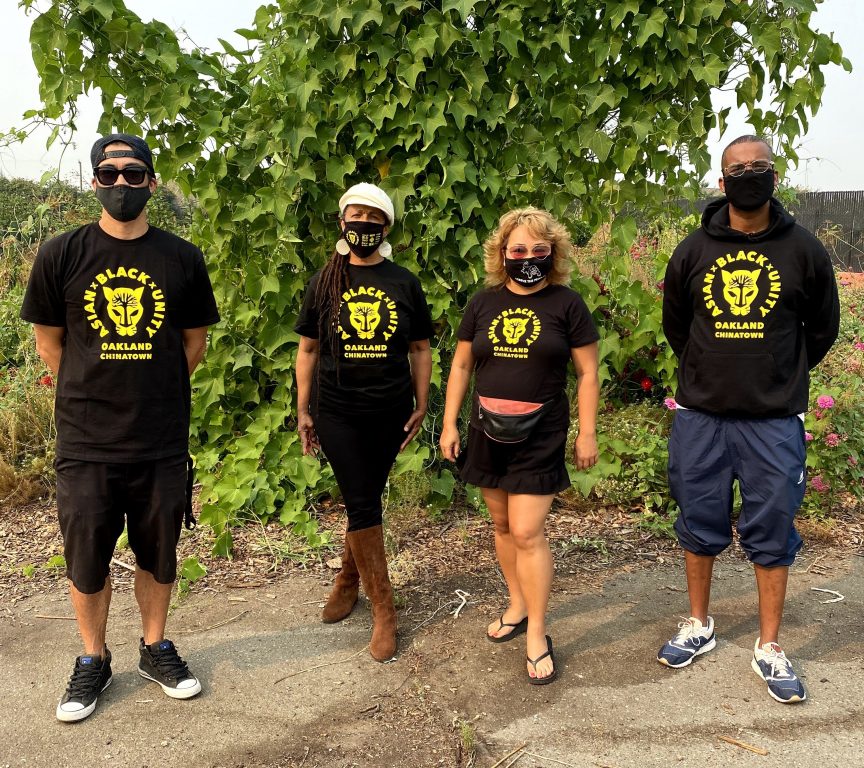
Co-founders Trinh Banh and Tommy Wong began GoodGoodEatz after the pandemic started, in April 2020, as a way to assist Oakland’s small underserved restaurants that were inaccessible online due to a technology gap or language barrier. There wasn’t anything in place to give a voice to the smaller, family-owned restaurants to reach the larger community in Oakland.
While the organization’s original goal was to keep restaurants open in Chinatown, they’ve become a conduit for influencing change through food. “That’s what happens. You come to the table, you break bread and that’s where the conversation starts,” Banh said. “That’s where the understanding and the learning and the opening of maybe, some minds and hearts happen — through food. I think it’s a powerful tool for exchanging ideas.”
GoodGoodEatz was intentional about collaborating with Tarika Lewis, one of the first women in the Black Panther Party, to direct their efforts in making the connections to solidify their alignment with the Black community. Wong, also the owner of Civic Design Studio, and Lewis, were already in mutual circles. The pair partnered in designing Asian Black Unity sweatshirts and tees. Prior to that, they also collaborated in 2018 around Black Panther’s release to design signage for Oakland. During the Stories of Solidarity virtual event, Wong shared he and Lewis wanted to show a visible representation of solidarity that has been lost over time.
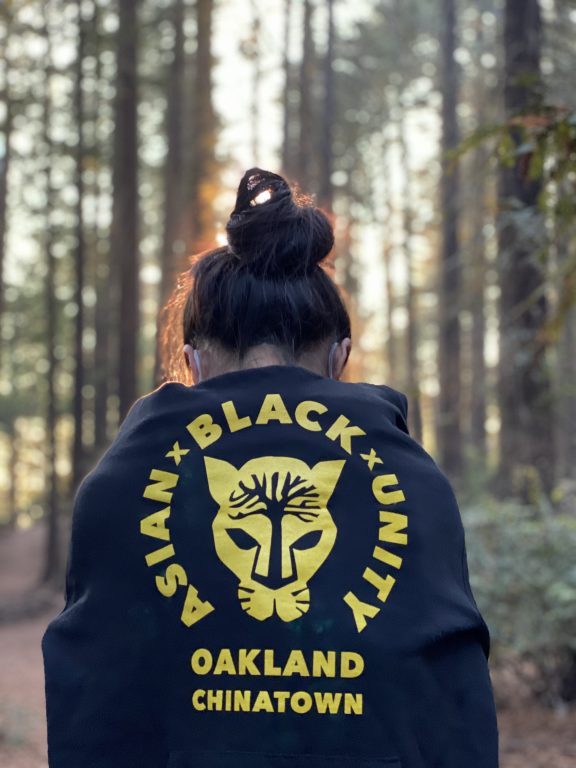
Then, following the protests of 2020 for Breonna Taylor and George Floyd, some members of the Asian community expressed anti-Black sentiments, Wong wanted to go into action. “It started with George Floyd where on the ground we’re hearing a lot of disturbing stuff in the [Asian] community — anti-Black stuff,” recalls Wong during Stories of Solidarity.
Starting with Chinatown, clean-up crews showed up wearing the newly designed sweatshirts and t-shirts as a show of support for the Black community. “We wanted to show visibly and very powerfully that there’s a whole new generation of people that grew up in Oakland, along with all different races,” said Wong during Stories of Solidarity. “There’s newcomers to Oakland who feel the same. We wanted to do some type of visual representation that shows that [solidarity].”
GoodGoodEatz has also been mindful of who they work with. In the designing and printing for merchandise, the organizers work with Black and Brown designers who share in ensuring that funds go back into the hands of the Black community. They have worked with Keez Design and for the second round of designs they have partnered with designer MADOW FUTUR.
Expanding their program with GoodGoodMemoreez, Eatz went on to raise $3,000 to support farm workers affected by the California wildfires using works of arts displaying shared experiences. In the summer of 2020, the group worked with World Central Kitchen to provide over 200,000 free meals into the community in Oakland, the beginnings of a lunch distribution program modeled after the Black Panthers Party’s free lunch program. In honor of Black History Month and Lunar New Year, the organization worked with Adrian Chang (@mykitsunecafe) and Erin Wilkins (@herbfolkmedicine) for a “Dumpling Cookalong Fundraiser.” The group is active in raising the profile of small businesses in Oakland, while keeping an eye toward racial solidarity.
Banh anticipates others will join in and continue the conversation because food is what brings people to the table. “We are able to bring in the conversation, paired with the activity of what we all love which is to eat. It’s really food as a center. At the crux of it, it’s about using food as a conduit for conversation.”
